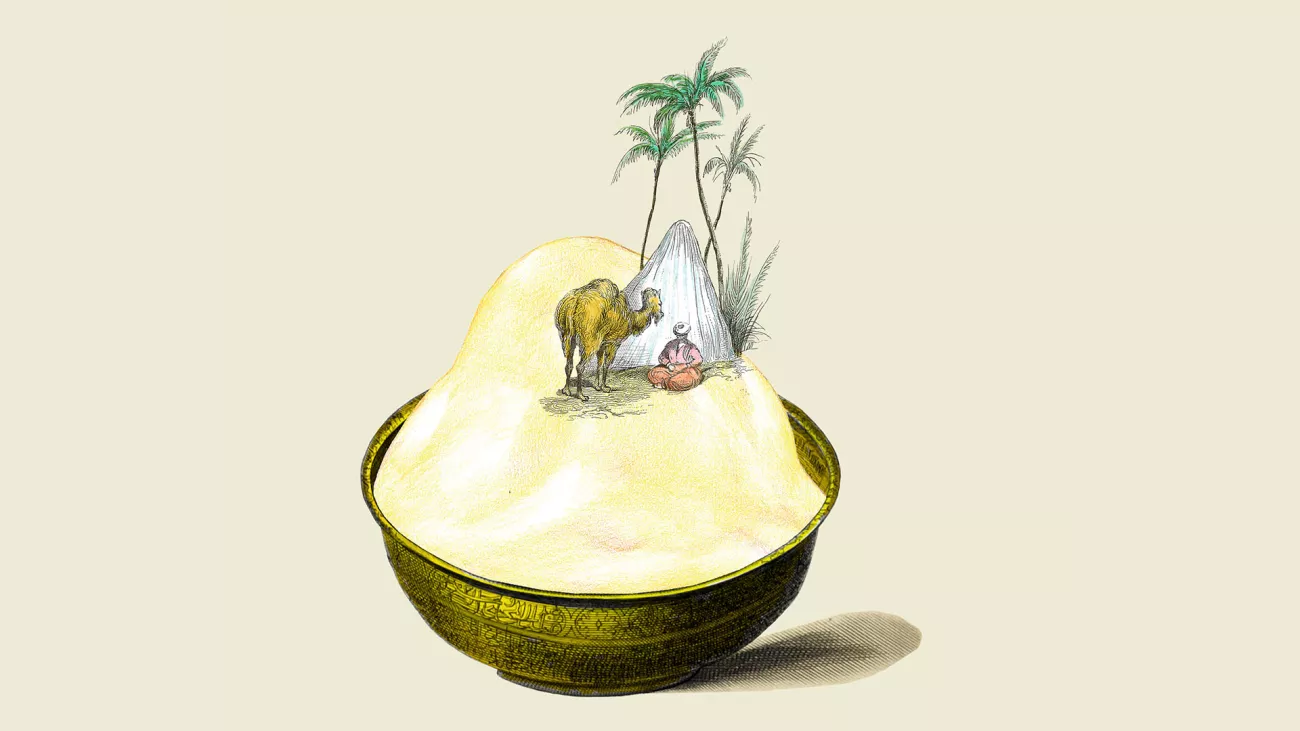Opera-Comique in three acts and eight tableaux. Libretto by Albert Vanloo and William Busnach. Premiered on 11 November 1887 at the Alhambra in Brussels

Launched by Offenbach at the Bouffes-Parisiens, Charles Lecocq treated the genre Offenbach had developed with a devotion that raised it to the level of opéra comique, while the Salle Favart dedicated itself to new drama and more literary ambitions. Always busy between Brussels and Paris, the two capitals of French opera, Lecocq managed to disseminate his art throughout Europe. With this virtuoso of operetta, fantasy combined with refinement in a balanced proportion envied by his friends Bizet, Saint-Saëns and Chabrier.
The fantasy of the tale and the Orient unfolds in this loose adaptation of the One Thousand and One Nights in which a whole collection of characters compose – with a great deal of mistaken identity – scenes alternately comic and highly lyrical.
Performance duration: 3h with an interval
France Musique will broadcast Ali Baba on the 3 June 2014.
Act I
In Cassim’s store, business is in full swing, animated by enterprising clerks. Chief clerk Saladin dances attendance upon pretty Morgiane who is but poor Ali Baba's maidservant. She turns him away kindly but firmly. Cassim and his wife Zobéide emerge in the middle of a quarrel. Cassim refuses to grant a bargain to Ali Baba: apart from being his wife’s cousin, he is his tenant and creditor. Besides, Cassim has called the qadi to expel Ali Baba that evening.
In the face of such inflexibility, Ali Baba can only think of one solution, suicide. He is about to hang himself when Morgiane enters and comforts him by reminding him of what he did for her: buy her from a slave trader, bring her up and protect her. Regaining his composure, Ali Baba goes back to work and is surprised by the incursion of sinister-looking men. These are forty thieves whose chief Kandgyar is working out a burglary with Zizi, Cassim’s former clerk. When they are gone, Ali Baba enters their den thanks to the magic words “Open sesame” he heard.
In the absence of Ali Baba and in front of his hut, his scanty possessions are put up for sale by qadi Maboul to Cassim’s satisfaction. The furniture is disregarded but Morgiane arouses lust. Ali Baba arrives just in time to double the price in order to get back his protégée. He puts forward a discreet benefactor who enables him to pay cash. Cassim can but suspect his wife.
Act II
While Ali Baba asks Morgiane to fetch scales in order to weigh his possessions, Zobéide reminds him of the tender feelings they shared in their youth. Cassim overhears his wife’s confidences but on seeing the scales, curiosity prevails over jealousy.
After the couple’s departure, Ali Baba reveals his fortune to Morgiane and the thieves’ secret, unsuspecting that Cassim is listening. Ali Baba goes to prepare a feast in the palace he has just acquired while Morgiane says goodbye to their hovel. Cassim rushes to the thieves’ cave and takes a bath of gold. But on getting out with a bagful, he forgets the magic words. The thieves come back with their new booty and discover Cassim. As he knows their secret he must die. But Zizi saves his former boss by claiming he is dead. He makes him up as a thief and names him Casboul.
Act III
In front of the closed shop, Zobéide entreats Ali Baba to inquire about her husband. Cassim is lurking around with Zizi under his new identity and learns that Saladin cheats him. When Ali Baba announces his death, Saladin is delighted while Zobéide seems to feel grief.
Ali Baba’s alms inform the chief of the thieves about the source of Ali Baba’s fortune as the money is marked. Zizi inscribes a cross on the door to the palace but Morgiane, who saw him, multiplies crosses on the street. Zizi and Cassim work their way into Ali Baba’s banquet. Cassim sees that his wife already declares her love to her cousin. Acknowledging the fact that a rich man should be married, Ali Baba suggests they celebrate their wedding that evening.
Horrified, Cassim denounces the source of Ali Baba’s wealth to the thieves. Morgiane is disturbed by the marriage plan whereas Ali Baba now sees her with a fresh eye. Disguised as a merchant, Kandgyar requests Ali Baba’s hospitality for him and his jars which contain his thieves. Morgiane saw the plot and has the qadi arrest them. Only Kandgyar and Zizi escape and intend to kill Ali Baba as well as Cassim who hastens to get away from them. During the feast Morgiane denounces the last two thieves and Cassim reveals himself to Zobéide. While the latter intervenes to save their former clerk Zizi from the punishment reserved for the thieves, Ali Baba can marry Morgiane.
Music direction, Jean-Pierre Haeck • Staging, Arnaud Meunier • With Sophie Marin-Degor / Judith Fa, Christianne Bélanger, Tassis Christoyannis, Philippe Talbot, François Rougier, Mark van Arsdale, Vianney Guyonnet, Thierry Vu Huu • Choir, accentus / Opéra de Rouen Haute-Normandie • Orchestra, Opéra de Rouen Haute-Normandie
See all the castMonday, May 12, 2014 - 8:00pm
Wednesday, May 14, 2014 - 8:00pm
Friday, May 16, 2014 - 8:00pm
Sunday, May 18, 2014 - 3:00pm (audio-description)
Tuesday, May 20, 2014 - 8:00pm (audio-description)
Thursday, May 22, 2014 - 8:00pm
3:00 - Salle Favart
110, 87, 67, 41, 15, 6 €
Some operas are available in audio description. "Image whisperers” are also available on demand.
More info on this page
Cast




















Actors, Logan De Carvalho, Nikola Krminac
Choir, accentus / Opéra de Rouen Haute-Normandie
Orchestra, Opéra de Rouen Haute-Normandie
Production, Opéra Comique
Co-production, Opéra de Rouen Haute-Normandie, Palazzetto Bru Zane – Centre de musique romantique française
Partnership



























